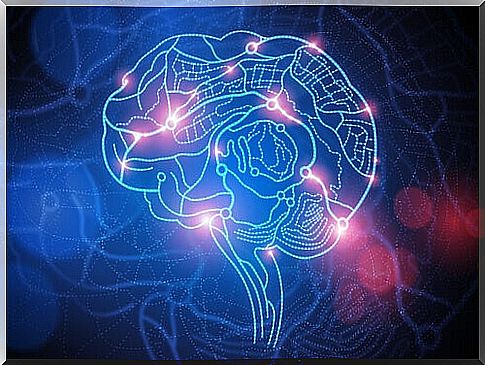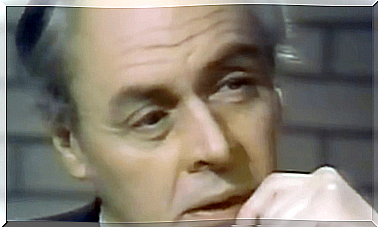Resistant Major Depression: When Treatment Does Not Work

Resistant major depression or refractory depression generally does not respond to common pharmacological treatments. It is common for many of these patients to go through a series of drug combinations or therapeutic approaches without achieving significant improvement. However, experience tells us that, sooner or later, we will find the treatment with which patients begin to experience positive changes.
The definition of this term, as curious as it may seem, still causes many disagreements. The NICE guide (The National Institute for Health and Care Excellence) says, for example, that diagnosing a person with resistant depression just because it does not show the expected outcome after taking two types of antidepressants is somewhat arbitrary.
Furthermore, organizations such as the British Association of Psychopharmacology believe that this diagnosis should be made when the patient has tried different combinations of medications without experiencing any changes.
As we can see, until today there is still no clear consensus on the subject. However, what we can see is that almost 30% of patients diagnosed with major depression do not experience improvement. Therefore, there are many professionals who are forced to reassess the diagnosis for one very obvious fact: sometimes there may be unidentified underlying disorders. Let’s delve a little deeper into this reality.

Resistant Major Depression: When Treatment Fails
We need to make it clear that depression is treatable. Whatever its typology, we are dealing with a type of multifactorial disorder that needs several strategies to be overcome: pharmacological, psychotherapeutic, social, etc.
With resistant major depression, the same thing happens. However, in these cases, we just need to be constant and persevering to find the most successful treatments, so that the person (that patient who suffers the elusive) experiences the improvement he needs.
On the other hand, we must not forget that antidepressants, taken in the appropriate doses and for a minimum of 6 weeks, generally offer a proven efficacy, but when this does not happen, when the patient realizes that his discomfort is still there, installed and devouring him inside, the desolation is absolute. In addition, the patient may lose confidence in their doctor and experience some skepticism when trying a new treatment.
Addressing resistant major depression is not easy for either party, which is why, in many cases, a firm commitment from the patient and, above all, family support is needed in order not to lose this therapeutic alliance. Likewise, when a person has tried two types of antidepressants without experiencing changes, the first thing our doctors should do, before starting a new approach, is the following:
- Check if the patient correctly follows the treatment, the indicated doses and the established time.
- Find out if he takes other types of medications (prescription or over-the-counter, including “natural” ones) that may interfere with the medication’s action.
- Consider whether there are other health problems, such as cardiovascular, neurological, or hormonal diseases.
- Consider whether the diagnosis was made properly. In many cases, major depression’s resistance to treatment is derived from the presence of other disorders, such as bipolar disorder, borderline personality disorder, etc.
Last but not least, it is also essential that the patient is fully aware of their illness and, as far as possible, is motivated to change. Chemistry, as we already know, is effective and essential in the treatment of depression, but it also requires a certain personal commitment with which we can optimize the therapeutic process.

Strategies to Help a Person With Resistant Major Depression
At this point, we will have noticed an aspect: someone is considered to suffer from resistant major depression when they do not respond to pharmacological treatment. However, what about the psychotherapeutic approach? Isn’t it useful in these cases? It must be said that there are no conclusive studies. That is, when a person with major depression does not experience improvement with antidepressants, they generally do not benefit from therapy.
Furthermore, we must not forget that this type of depression is a highly severe mood disorder that requires the administration of psychotropic drugs and that, when they do not work, we generally follow these strategies:
- The dose of the drug is increased.
- Switch to another antidepressant.
- Use combined antidepressants.
Treatment with antidepressants is enhanced with the addition of other drugs that can be:
- Antipsychotics.
- Lithium.
- Anticonvulsants.
- Triiodothyronine.
- Pindolol.
- Zinc.
- Benzodiazepines.
Two Techniques for Treating Resistant Major Depression
Until recently, controversial electroconvulsive therapy was used to treat resistant depression. However, in recent years there have been two interesting therapies that we need to know about:
- The transcranial magnetic stimulation (TMS) is a noninvasive and painless way of stimulating the cerebral cortex able to interfere in a controlled manner in normal brain activity. Thanks to this “neuromodulation” it is possible, for example, for the drugs to work effectively or for the person to be more receptive to psychological therapy.
- On the other hand, as several studies demonstrate, vagus nerve stimulation is another strategy that significantly improves the symptoms of major depression. The method is based on the application of an electrical device that stimulates this nerve, which is in contact with our brain. Thanks to this, the patient is calmer, reduces stress, anxiety and negative thoughts.

What should I do if I suffer from resistant major depression?
- If the treatment doesn’t work right away, don’t give up.
- Understand that your doctor may need to change the dose, propose a new psychotropic drug, or even combine several types. Be patient and trust.
- Understand that depression is unique to each person and therefore your doctor should find a treatment that is right for you. Trust him and work together.
- If you use other medications, you should inform your doctor.
- It is also important that you take care of your health and your lifestyle. Sometimes, poor diet or even an addiction can interfere with the treatment.









